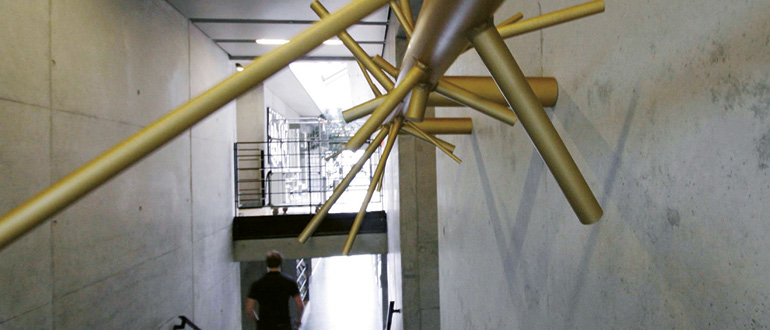|
Dato, tid og sted: |
Seks undervisningsgange: |
|
Sprog: |
Engelsk (hvis der er ikke-dansk talende i gruppen) |
|
ECTS: |
4 |
|
Undervisere: |
Mikkel Gerken (kursusansvarlig), Esben Nedenskov Pedersen, Caroline Schaffalitzky, Nikolaj Nottelmann, Søren Harnow Klausen og Lars Binderup |
|
Tilmelding: |
Bindende tilmelding her - senest 5. september 2019 |
|
Opgaveaflevering: |
Deadline 29/10 2019 |
Kursusbeskrivelse
(English version below)
Hvilke forskningsmetoder karakteriserer humaniora? Er disse metoder genuint videnskabelige? Søger humanistiske forskere sandhed? Forklarer humanister eller fortolker de blot? Det er til stadighed vigtigere, at humanistiske forskere er i stand til at adressere sådanne spørgsmål, og at de kan artikulere deres forskningsmetoder i en bredere videnskabsteoretisk sammenhæng. I særdeleshed er det vigtigt for humanister, at de kan karakterisere deres egne standarder i henhold, eller modsætning, til de videnskabsteoretiske standarder for natur -og samfundsvidenskaberne.
Kurset er designet til Ph.d. studerende i humaniora (bredt forstået) og har et tofoldigt mål: For det første sigter det på at gøre deltagerne bekendt med nogle centrale diskussioner indenfor generel videnskabsteori. For det andet, søger kurset at assistere deltagerne med at forbinde disse diskussioner til deres egne Ph.d.-projekter. Kursusformatet er derfor en slags workshop, som blander baggrundsteori med en fokus på deltagernes egen forskning. Således er de overordnede formål med kurset at give deltagerne anledning til metodologisk selvreflektion, samt at give deltagerne en begrebslig værktøjskasse, som de kan anvende til dette formål. Kurset vil have fokus på videnskabsteoretiske redskaber, der kan anvendes i forskningen såvel som på i forskningskommunikation.
Kursus krav:
1: Aktiv deltagelse: Deltagerne skal deltage i mindst fire af de seks seminarer (herunder det første og det sidste seminar).
2: Klasseopgaver: Opgaver som primært består af mundlige præsentationer og diskussion.
3: Opgave: En kort (3 siders) opgave som fokuserer på deltagerens eget PhD projekt.
4: Peer feedback: Mundtlig peer feedback på en anden deltagers opgave i sidste seminar.
Course description.
What research methods are characteristic of the humanities? Are these methods genuinely scientific? Are researchers in the humanities seekers of truth? Do humanists explain or do they merely interpret? It is increasingly pressing for researchers in the humanities to be able respond to such questions and to articulate their methodology in the context of a broader theory of science. In consequence, familiarity with theory of science is perhaps particularly important for researchers in the humanities. In particular, it is important that researchers within the humanities to be able to characterize their own scientific standards in relation – or opposition – to those of the natural and social sciences.
The course is designed for PhD students in the humanities (broadly construed) and has a twofold aim: First, it aims to help the participants familiarize themselves with some of the central discussions in the theory of science. Second, it aims to assist participants in connecting these discussions and frameworks to their own research. Consequently, each session will provide opportunities for the participants to focus on methodological issues that pertain to their own PhD projects. The format of the course will be that of a workshop that mixes background theory with a focus on the participants’ ongoing research. Thus, the course aims to simultaneously further methodological self-reflection and provide a conceptual tool-box for doing so. The course will focus on the tools important for research as well as those important for research communication.
Course requirements:
1: Active participation: Participants must take part in at least four of the six seminars and this must include the final seminar.
2: In-class work: Primarily verbal presentations and discussion.
3: Paper: A short (3 page) paper focusing on the student’s own PhD project.
4: Peer feedback: Verbal peer feedback on the other participants paper in the final seminar.
on below)
